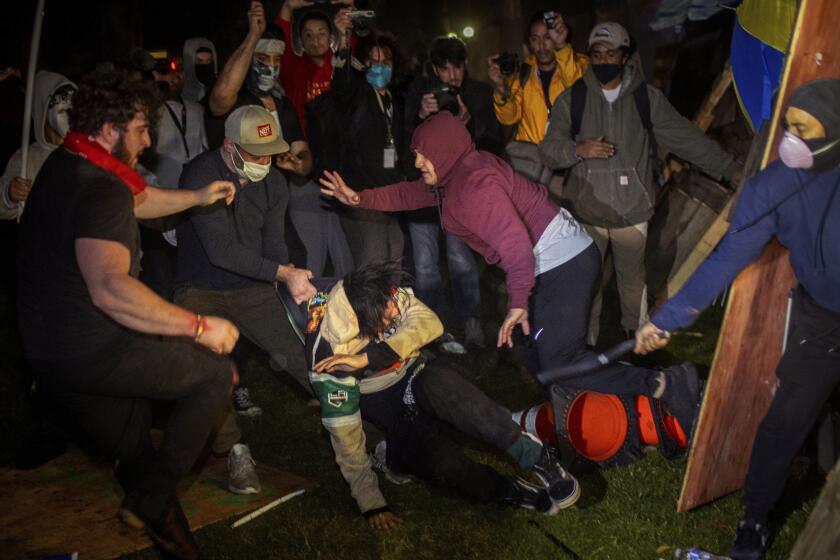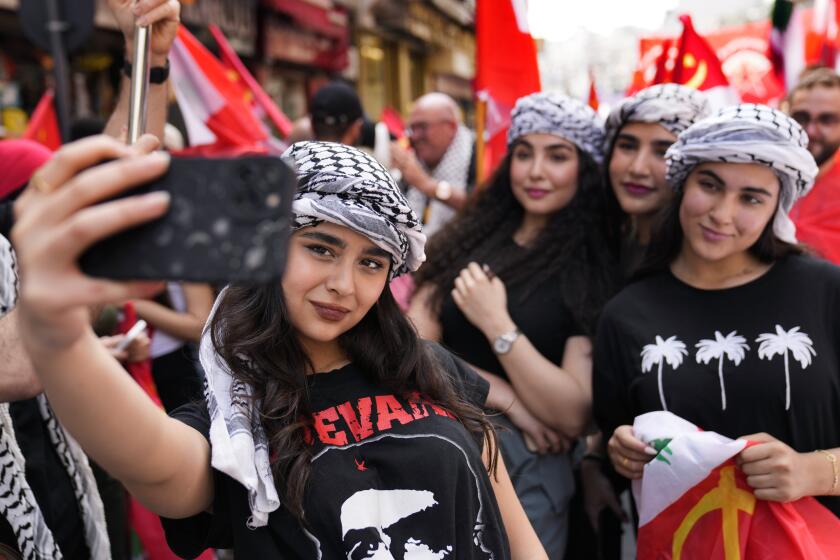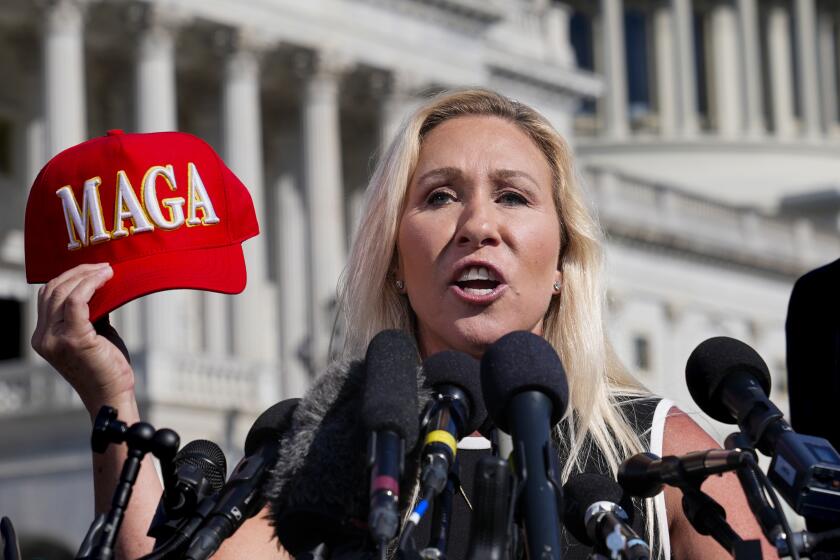Free speech divides U.N.
The annual U.N. General Assembly meeting, which is intended to celebrate the world’s common values, this year is exposing instead the gulf between Western and Islamic perspectives on freedom of expression, posing an unexpected challenge for President Obama when he speaks here Tuesday.
Prompted by the anti-Islam video produced in California that has stirred deadly riots around the world, delegations from major Muslim nations have arrived at the U.N. prepared to demand international curbs on speech or media that they believe defame their religion or the prophet Muhammad.
Western leaders say they won’t give ground on free speech, but the clash is souring the mood at a gathering that diplomats had hoped would yield new collaboration on Syria, the dispute over Iran’s nuclear development and the challenges newly elected governments face a year after the “Arab Spring” toppled authoritarian rulers in the Middle East and North Africa.
The demand for limits on anti-Muslim expression is coming from leading Islamic groups such as the Organization of Islamic Cooperation, and leaders as diverse as Turkish Prime Minister Recep Tayyip Erdogan, Egyptian President Mohamed Morsi and Iranian President Mahmoud Ahmadinejad.
Erdogan, whom President Obama views as a key ally, has declared that all 57 Islamic nations “should speak forcefully with one voice,” and has called for “international legal regulations against attacks on what people deem sacred.”
These leaders consider anti-Islamic material a kind of hate speech that should be banned around the world. They are expected to demand those regulations when debate begins Tuesday in the General Assembly.
“This has exposed a huge fault line in political philosophies,” said Stewart Patrick of the nonpartisan Council on Foreign Relations. “It may be irreconcilable.”
The dispute puts Obama in a difficult position in the closing weeks of the presidential race. Although the president will stand firmly for 1st Amendment values, he needs to be careful in condemning the anti-Muslim video so as not to sound an apologetic note that would draw political fire from his adversaries.
The White House was hoping Obama could use his U.N. address to show how his administration’s support for democratic movements in the Arab Spring and greater engagement with the Muslim world overall have improved America’s standing after a decade of war in Muslim nations.
Instead he faces a jarring reminder of the anti-American riots in about 20 nations and the storming of the U.S. Consulate in eastern Libya that killed Ambassador J. Christopher Stevens and three other Americans on Sept. 11. The White House last week described the assault in Benghazi as a terrorist attack.
The controversy is expected to breathe new life into efforts by the Organization of Islamic Cooperation, which pushed unsuccessfully for a dozen years for the U.N. Human Rights Council to pass a resolution making anti-blasphemy laws a matter of global human rights.
A battle at the U.N. for such a standard, even if it doesn’t pass, is a setback for U.S. policy on several levels.
Experts say it helps legitimize efforts in parts of the Islamic world to enforce tough anti-blasphemy laws that may be used to target moderate politicians and permit harsh treatment of minority groups and religions. It also could make it harder for missionaries seeking converts and Western nongovernmental groups pushing for democratic governance.
“This could justify tough crackdowns on religious minorities,” Patrick said. “This does touch on American values.... U.S. officials have been very worried in the past that this effort would catch on.”
In Pakistan, it is a crime to insult Muhammad, the Koran or Islam, a law that critics say can be used to settle scores against adversaries or persecute minorities.
In Egypt, Coptic Christians have said they worry that the anti-Islam video, called “Innocence of Muslims,” could unleash a wave of violence against them. Two men reportedly involved with the video are Egyptian immigrants tied to conservative Christian causes.
The demand for limits on supposed hate speech reflects, in part, new political realities since the Arab Spring.
In countries such as Egypt and Tunisia, previously outlawed Islamist parties are competing openly for votes and power. Their leaders are seeking to outflank more moderate political rivals, who feel increasing pressure to back down on free speech amid the broader public outrage.
Morsi, the Egyptian president, was slow to respond when protests broke out over the video. The Muslim Brotherhood, now a dominant force in Egyptian politics, wants to maintain its legitimacy on the streets, and it took two days after crowds stormed the U.S. Embassy in Cairo for the new Egyptian leader to publicly condemn the attack.
Rachid Ghannouchi, leader of the moderate Islamist Nahda party in Tunisia, is widely respected in the West, for example. But he has joined the calls for international criminalization of anti-Muslim speech, and his party has introduced a draft law in Tunisia’s legislature that would make such behavior illegal.
On the far end of the spectrum, Sheik Hassan Nasrallah, head of the Shiite Muslim militant group Hezbollah in Lebanon, has also called for international rules to ban insults against Islam, as well as insults against Christianity and Judaism. His comments are viewed as a sign of the popular appeal of the issue because he rarely concerns himself with international diplomacy.
Also Monday, Ahmadinejad, the Iranian president, told reporters in New York that Israel is only a short-lived presence among the ancient civilizations of the Middle East and would eventually be “eliminated.”
Meanwhile, the situation in battle-ravaged Syria “is extremely bad and getting worse,” Lakhdar Brahimi, special envoy for the United Nations and the Arab League, told reporters in New York. The violence there “is a threat to the region and a threat to peace and security in the world.”
--
Times staff writer Patrick J. McDonnell in Beirut contributed to this report.
More to Read
Start your day right
Sign up for Essential California for news, features and recommendations from the L.A. Times and beyond in your inbox six days a week.
You may occasionally receive promotional content from the Los Angeles Times.







